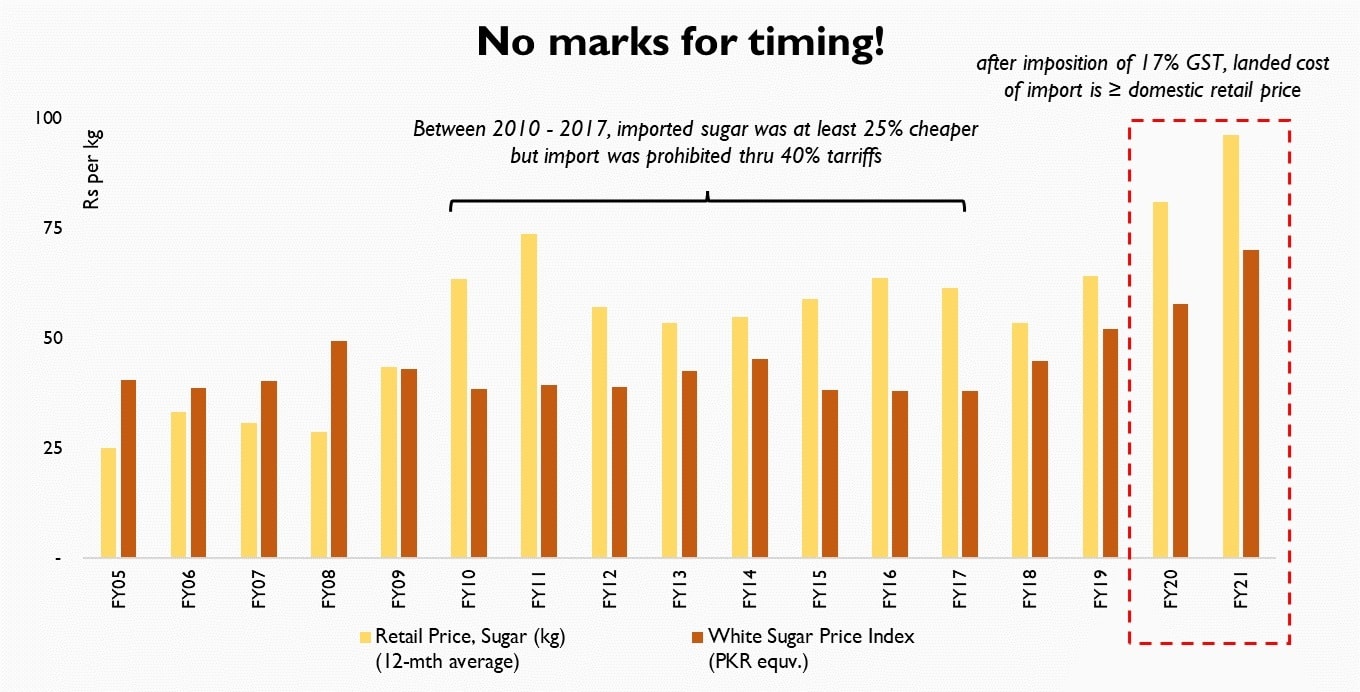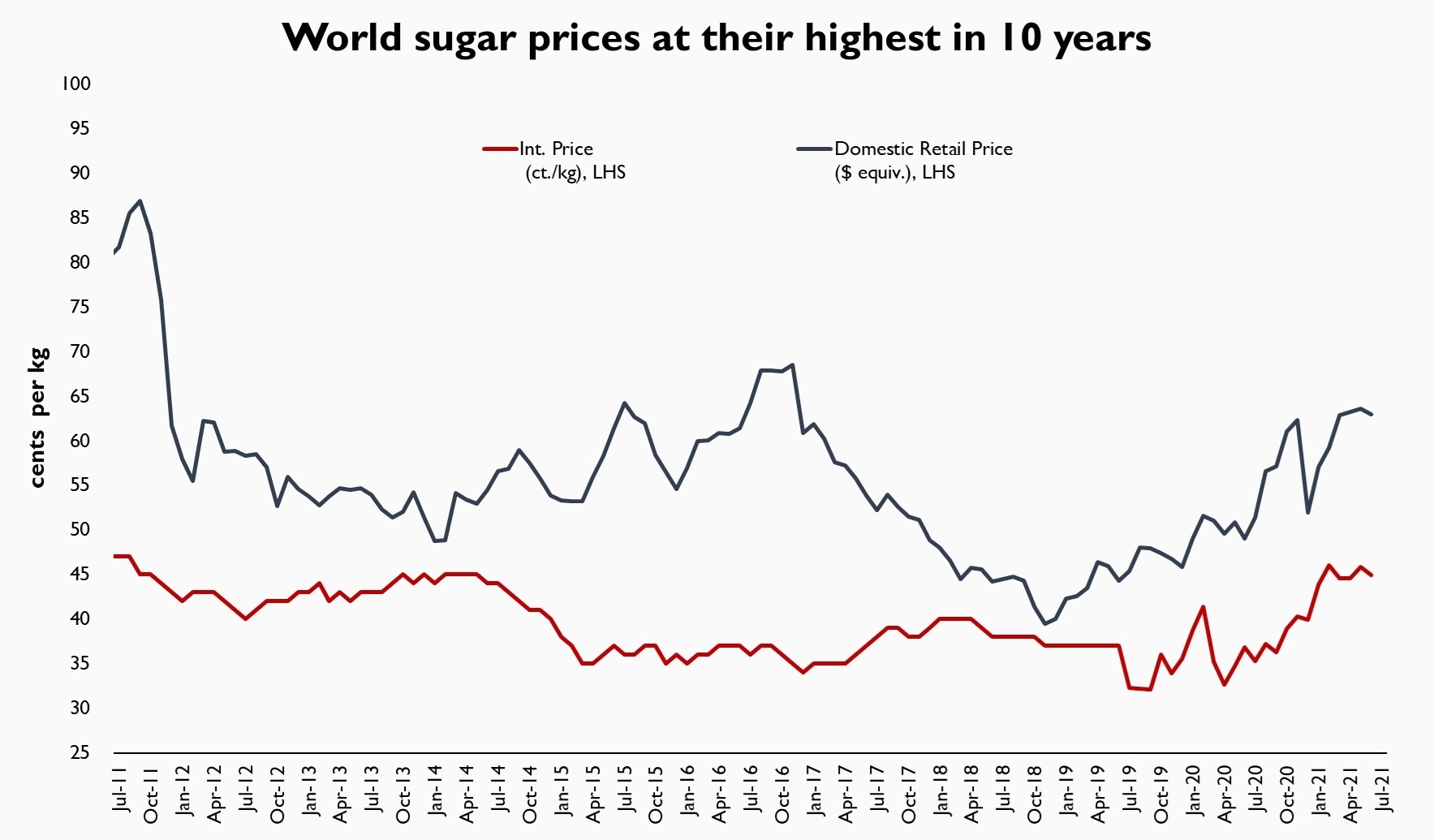Hardly a week goes by when market prices of refined sugar are not a matter of debate in routine meetings of federal cabinet. Evidently, the commodity dominates the political consciousness of the decisionmakers, with which comes intervention. Afterall, the need to “set things right” lies at the heart of all political bargaining. Never mind how damning the evidence may be of how excessive interference only makes things worse.

Consider the most recent developments. The administration has rightfully concluded that national sugar supply in the current year may prove insufficient to meet domestic consumption. Let it sink in that import of a commodity as basic as sugar requires months of deliberation at the highest executive decision-making level of the country. It has taken exactly 6 months before an import order of less than 5 percent of annual national demand could be placed, which would pull the country through for 3-4 weeks max., and will add no more than $160 million to import bill. Sugar import is inconsequential yet takes up hundreds of precious manhours of country’s top decisionmakers. If that doesn’t speak volumes about the snail’s speed at which states makes decision, not sure what does.

The uninitiated might feel tempted to ask: but why is state at all making decisions of commodity import? Because simply put, its political posturing over the past three years has simply rendered private sector activity (in sugar industry) impotent. Since lockdowns were lifted globally post September 2020, world sugar prices have reached highest levels in past 10 years. Yet, even at current international prices there may be some room to import and turn a profit, were it not for series of errors made by decisionmakers.
If one were to assume that the tender bids received by the government for import are market competitive - $526 per ton cost & freight – landed cost of imported sugar would be equal to Rs 86 per kg. But because GoP had imposed 17 percent GST on domestically produced sugar, allowing private sector to import duty free would lead to cry over ‘uneven playing field’. Thus, to avoid that eventuality and ensure that imports help stabilize price, not raise them – the administration believes it has no choice but to cough up $160 million for import out of its own kitty. That’s Rs 25billion well-spent to maintain pretences.

Which only further raises more question: why is GoP hell bent on lowering domestic sugar prices at all? At a time when even duty-free import would at best manage to maintain prices at current levels (instead of reducing them), why can the administration simply not allow private sector to import and sell at market prices, while also collecting revenues in the process? That’s because successive administrations have been led to believe that expensive sugar can topple their rule, and everything must be done to avoid it.
Consider how past governments pride themselves in ensuring that market prices of sugar declined in their tenure. Between 2013 – 2018, domestic prices of sugar were remarkably stable between Rs 55 – 60 per kg, with any price hike quickly quelled as if they were mutinous revolts. Never mind, that during most of that period, domestic prices were at one third premium to international prices. While domestic producers were shielded from global competition in the name of increasing domestic output.

Or consider how successive administrations have increased minimum support price of raw material sugarcane exponentially, both in the name of increasing output as well as farmer support. Sugarcane MSP was first doubled within five years between FY06 – FY10 to ensure supply kept up with growing demand. It has since doubled again during the subsequent decade. Only recently have output (refined sugar) prices managed to catch up, first aided by currency depreciation and then deceitfully maneuvered through well-timed exports.
Today, when the market prices may finally be truly reflective of fundamentals, the decisionmakers in Islamabad feel cheated, as if the industry had promised to not make things hard for the ruling party. If that means GoP must spend few dollars and drawdown credit lines to finance import, so be it. Pretences must be kept!

























Comments
Comments are closed.